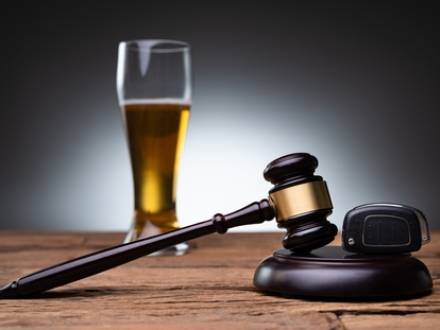Recent Blog Posts
Wisconsin Medical License Renewal And DSPS License Complaint Defense
 A physician cannot practice in the state of Wisconsin without a medical license from the Wisconsin Medical Examining Board. Allegations of professional misconduct that trigger a board investigation can pose both immediate and long-term threats to a doctor’s ability to practice medicine, make a living, care for their family, and live the life that many years of difficult studying and training deserves.
A physician cannot practice in the state of Wisconsin without a medical license from the Wisconsin Medical Examining Board. Allegations of professional misconduct that trigger a board investigation can pose both immediate and long-term threats to a doctor’s ability to practice medicine, make a living, care for their family, and live the life that many years of difficult studying and training deserves.
Unfortunately, people make mistakes and misunderstandings happen. When questions about a physician’s ability to safely and competently practice medicine arise, having professional, aggressive legal counsel is essential. A knowledgeable Wisconsin professional license defense attorney can help a physician go through the process of getting their license back and can also work to prevent license suspension and revocation in the first place. At GRGB, we work hard not only to protect your license, but your reputation as well.
What Happens if You Sell Drugs to Someone Who Overdoses?
 Overdose deaths in Wisconsin have steadily increased in recent years and this trend shows no signs of stopping. Fentanyl and other powerful synthetic opioids are now often cut into unrelated drugs, leading to nearly twice as many people dying of an overdose in 2021 compared to 2019, including many people who never intended to take drugs with opioids in them.
Overdose deaths in Wisconsin have steadily increased in recent years and this trend shows no signs of stopping. Fentanyl and other powerful synthetic opioids are now often cut into unrelated drugs, leading to nearly twice as many people dying of an overdose in 2021 compared to 2019, including many people who never intended to take drugs with opioids in them.
In response to this dramatic increase in overdose fatalities, Wisconsin Governor Tony Evers signed a bill last year increasing the punishment for first-degree reckless homicide, which is the crime anyone involved in contributing to a drug overdose death could be charged with. Milwaukee prosecutors aggressively prosecute people accused of selling drugs that lead to overdose deaths and penalties for this drug crime are severe. If you have been arrested for distributing drugs of any kind, you need to take these charges very seriously and contact our experienced Wisconsin drug crimes defense attorney right away.
How Can Civil Litigation Address Construction Defects?
 Construction projects require significant investments of time, money, and resources. Unfortunately, work performed on these projects may not meet proper standards and defects can lead to serious safety concerns and financial losses. Civil litigation can be an effective way to address these defects and recover compensation for the damages caused. An experienced attorney can help property owners, real estate developers, or other parties address these issues correctly through construction litigation.
Construction projects require significant investments of time, money, and resources. Unfortunately, work performed on these projects may not meet proper standards and defects can lead to serious safety concerns and financial losses. Civil litigation can be an effective way to address these defects and recover compensation for the damages caused. An experienced attorney can help property owners, real estate developers, or other parties address these issues correctly through construction litigation.
Types of Construction Defects
Construction defects can occur in various forms and at different stages of a project. Understanding the potential types of defects that may need to be addressed can help ensure that the appropriate legal action can be taken to address these issues. Some common defects include:
When Can Multiple OWI Convictions Lead to Felony Charges?
 Drunk driving is known to be dangerous. The effects of alcohol or drugs on a person’s body and mind can make it difficult or impossible to drive safely. Because of the risks of accidents that can result in serious injuries to multiple people, people who are caught driving while intoxicated face criminal charges.
Drunk driving is known to be dangerous. The effects of alcohol or drugs on a person’s body and mind can make it difficult or impossible to drive safely. Because of the risks of accidents that can result in serious injuries to multiple people, people who are caught driving while intoxicated face criminal charges.
Operating while intoxicated (OWI) is a serious offense in Wisconsin, particularly for repeat offenders. A person who has been arrested for drunk driving multiple times could face severe penalties, including felony charges. An experienced attorney can provide legal help for people facing felony OWI charges while working to ensure that a person accused of drunk driving will be able to resolve their case favorably.
When Does OWI Become a Felony in Wisconsin?
In Wisconsin, OWI charges escalate in severity with each subsequent conviction. While first, second, and third OWI offenses are generally treated as misdemeanors, a fourth OWI and any additional drunk driving arrests will result in felony charges. The specific penalties for multiple OWI convictions include:
What Are the Most Common Injuries in Bicycle Accidents?
 Bicycling is a popular mode of transportation and recreation in Milwaukee and other parts of Wisconsin. However, sharing the road with vehicles can put bicyclists at risk of harm in bicycle accidents, especially when drivers act negligently or fail to share the road safely. When a bicyclist is struck by a vehicle, the injuries can be severe and life-altering. An experienced Wisconsin personal injury attorney can help injured bicyclists address their legal issues and pursue compensation for their injuries.
Bicycling is a popular mode of transportation and recreation in Milwaukee and other parts of Wisconsin. However, sharing the road with vehicles can put bicyclists at risk of harm in bicycle accidents, especially when drivers act negligently or fail to share the road safely. When a bicyclist is struck by a vehicle, the injuries can be severe and life-altering. An experienced Wisconsin personal injury attorney can help injured bicyclists address their legal issues and pursue compensation for their injuries.
Common Injuries in Bicycle Accidents
Bike accidents can result in a wide range of injuries, and an injured bicyclist may require extensive medical treatment and rehabilitation. Here are some of the most common injuries that bicyclists may experience:
-
Head injuries: Even with a helmet, a bicyclist can suffer a concussion due to the impact with a vehicle or the ground. They may even experience more serious traumatic brain injuries (TBIs), which can lead to long-term cognitive impairments, emotional issues, and physical effects.
What Factors Are Considered in Parental Relocation Cases?
 There are many reasons why parental relocation may become an issue after parents divorce or separate. When one parent plans to move with their children, the other parent may become concerned about how this will affect the children and their relationship. The parent who is not moving may worry that they will have less time with their children, that they will be less involved in decisions about how their children will be raised, and that longer travel times and additional expenses will be required to transport children between the parents’ homes.
There are many reasons why parental relocation may become an issue after parents divorce or separate. When one parent plans to move with their children, the other parent may become concerned about how this will affect the children and their relationship. The parent who is not moving may worry that they will have less time with their children, that they will be less involved in decisions about how their children will be raised, and that longer travel times and additional expenses will be required to transport children between the parents’ homes.
When addressing these concerns and determining whether it may be possible to contest a parental relocation, parents will need to understand what issues a family court judge may consider when making decisions about modifications to child custody. By working with a lawyer who has experience representing clients in contested family law cases, parents can determine what steps to take to protect their rights and maintain positive relationships with their children.
Can I Stop My Ex-Spouse From Relocating With My Child?
 After completing the divorce process, parents establish new routines and do their best to share custody effectively while providing care for their children and maintaining positive parent/child relationships. Maintaining consistent routines and schedules for physical placement is one of the best ways parents can help children become accustomed to the changes they have experienced. However, this consistency can be threatened if a parent chooses to move a significant distance away and requests modifications to visitation schedules or other aspects of child custody.
After completing the divorce process, parents establish new routines and do their best to share custody effectively while providing care for their children and maintaining positive parent/child relationships. Maintaining consistent routines and schedules for physical placement is one of the best ways parents can help children become accustomed to the changes they have experienced. However, this consistency can be threatened if a parent chooses to move a significant distance away and requests modifications to visitation schedules or other aspects of child custody.
In Wisconsin, there are specific guidelines under the law for parental relocation. A parent who is concerned about an ex’s plans to move with a child may be able to take steps to contest the relocation. In these situations, an experienced attorney can provide invaluable legal help and ensure that a parent will be able to protect their parental rights.
When Could a Bar or Restaurant Lose its Liquor License?
 Owners of bars or restaurants in Milwaukee and other nearby cities in Wisconsin must follow various regulations, including specific laws related to selling and serving alcohol. The Wisconsin Department of Safety and Professional Services (DSPS) oversees the issuance and regulation of liquor licenses. Losing a liquor license can be devastating for any establishment, and it is crucial to understand the potential reasons for disciplinary action. An attorney with experience in business and restaurant licensing can help defend against the loss of a liquor license or other forms of regulatory discipline.
Owners of bars or restaurants in Milwaukee and other nearby cities in Wisconsin must follow various regulations, including specific laws related to selling and serving alcohol. The Wisconsin Department of Safety and Professional Services (DSPS) oversees the issuance and regulation of liquor licenses. Losing a liquor license can be devastating for any establishment, and it is crucial to understand the potential reasons for disciplinary action. An attorney with experience in business and restaurant licensing can help defend against the loss of a liquor license or other forms of regulatory discipline.
Reasons for Disciplinary Action by the DSPS
The DSPS has strict guidelines that establishments must follow to maintain their liquor licenses. Violations of these guidelines can lead to disciplinary actions, including the potential suspension or revocation of the license. Some common reasons for disciplinary action include:
When Can Civil Litigation Address a Breach of Contract?
 Contracts form the foundation of many business transactions and relationships. When one party fails to fulfill their obligations under a contract, the other party will need to determine how to address the breach of contract. Commercial litigation may be necessary to resolve contract disputes. By demonstrating that they have suffered harm due to a breach of contract, the injured party can receive appropriate remedies. An experienced attorney can provide representation in these cases, helping injured parties seek remedies or working to defend against breach of contract allegations.
Contracts form the foundation of many business transactions and relationships. When one party fails to fulfill their obligations under a contract, the other party will need to determine how to address the breach of contract. Commercial litigation may be necessary to resolve contract disputes. By demonstrating that they have suffered harm due to a breach of contract, the injured party can receive appropriate remedies. An experienced attorney can provide representation in these cases, helping injured parties seek remedies or working to defend against breach of contract allegations.
Types of Contract Disputes
Breach of contract disputes arise in various situations, including:
-
Construction projects: Multiple parties such as including property owners, contractors, subcontractors, and suppliers may be involved in these conflicts. Disputes may be related to delays in the completion of projects, which can lead to significant financial losses for multiple parties. These cases may also address defective workmanship that did not meet the specified standards or non-payment for work or materials.
Are Motorcycle Accidents More Likely to Occur in the Summer?
 Motorcycle enthusiasts often look forward to the summer as the perfect time to hit the open road. However, while warm weather and clear skies offer ideal riding conditions, motorcyclists also face increased risks. While more motorcycle accidents occur in the summer, those injured in these accidents can take steps to address the harm they have experienced and make sure negligence by other drivers or other parties is addressed. An experienced attorney can provide representation in these cases and work to ensure that motorcyclists receive compensation for their injuries.
Motorcycle enthusiasts often look forward to the summer as the perfect time to hit the open road. However, while warm weather and clear skies offer ideal riding conditions, motorcyclists also face increased risks. While more motorcycle accidents occur in the summer, those injured in these accidents can take steps to address the harm they have experienced and make sure negligence by other drivers or other parties is addressed. An experienced attorney can provide representation in these cases and work to ensure that motorcyclists receive compensation for their injuries.
Why Motorcycle Accidents Increase in the Summer
Statistics show that August is the most dangerous month for motorcyclists, with 12 percent of all fatal motorcycle accidents occurring during this month. Other summer months can also be dangerous and there are several factors that can contribute to the rise in motorcycle accidents during this time.







